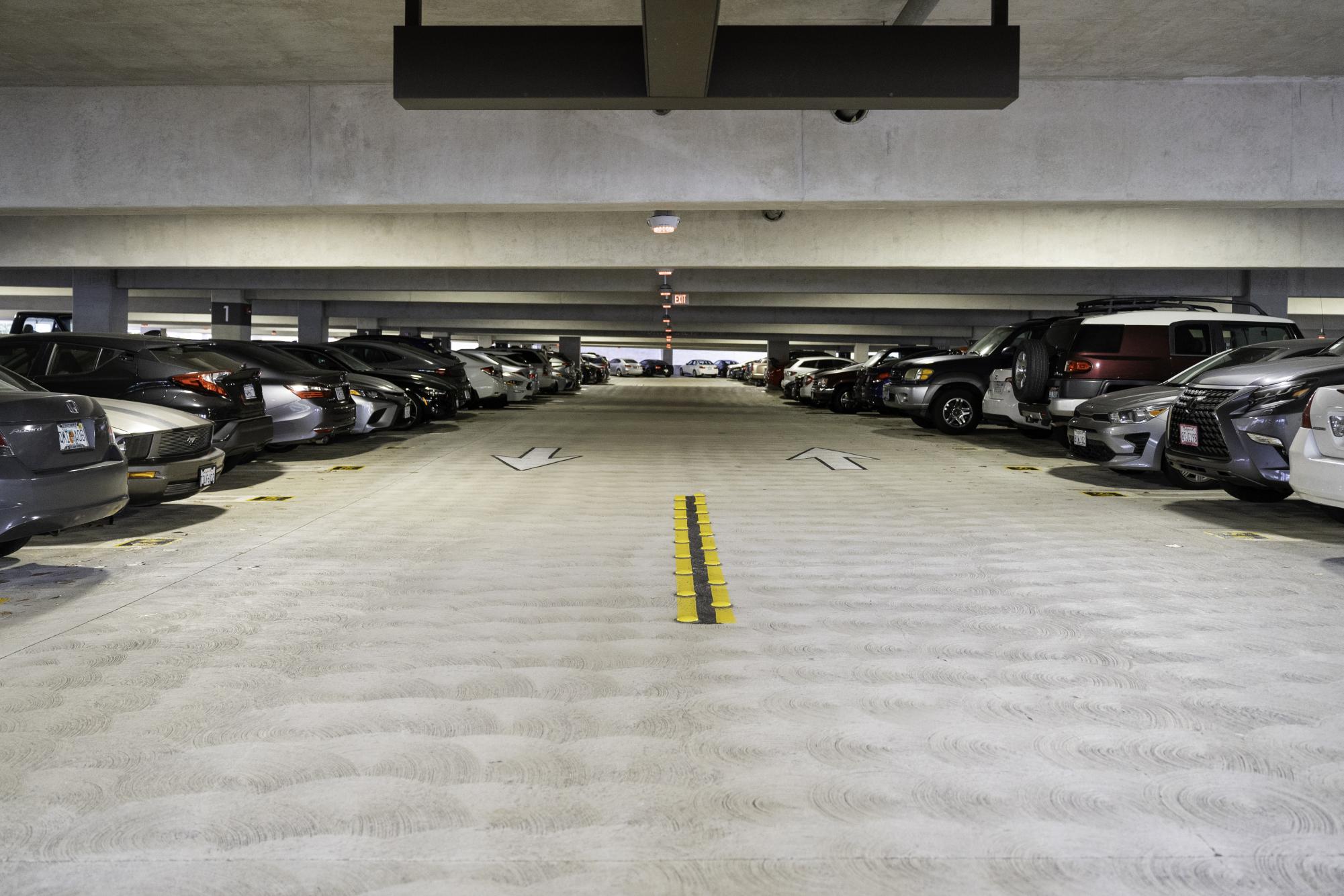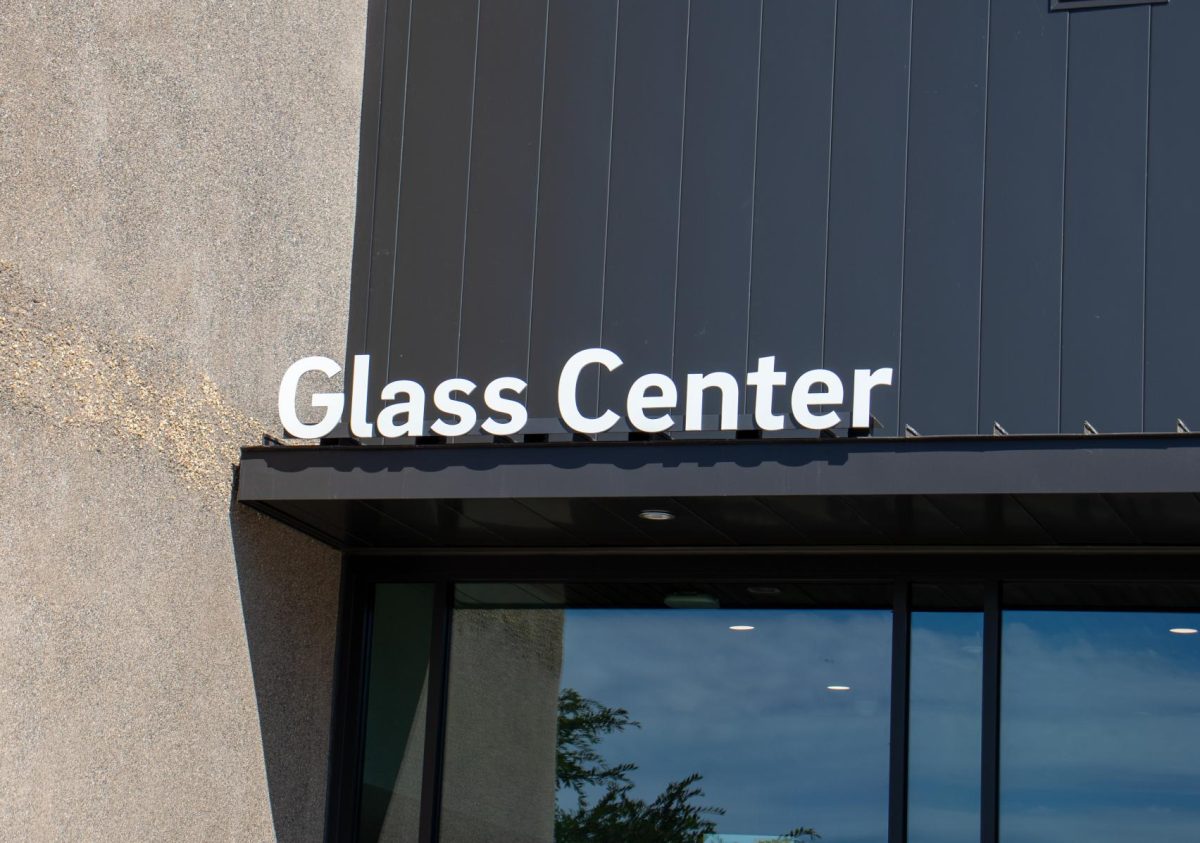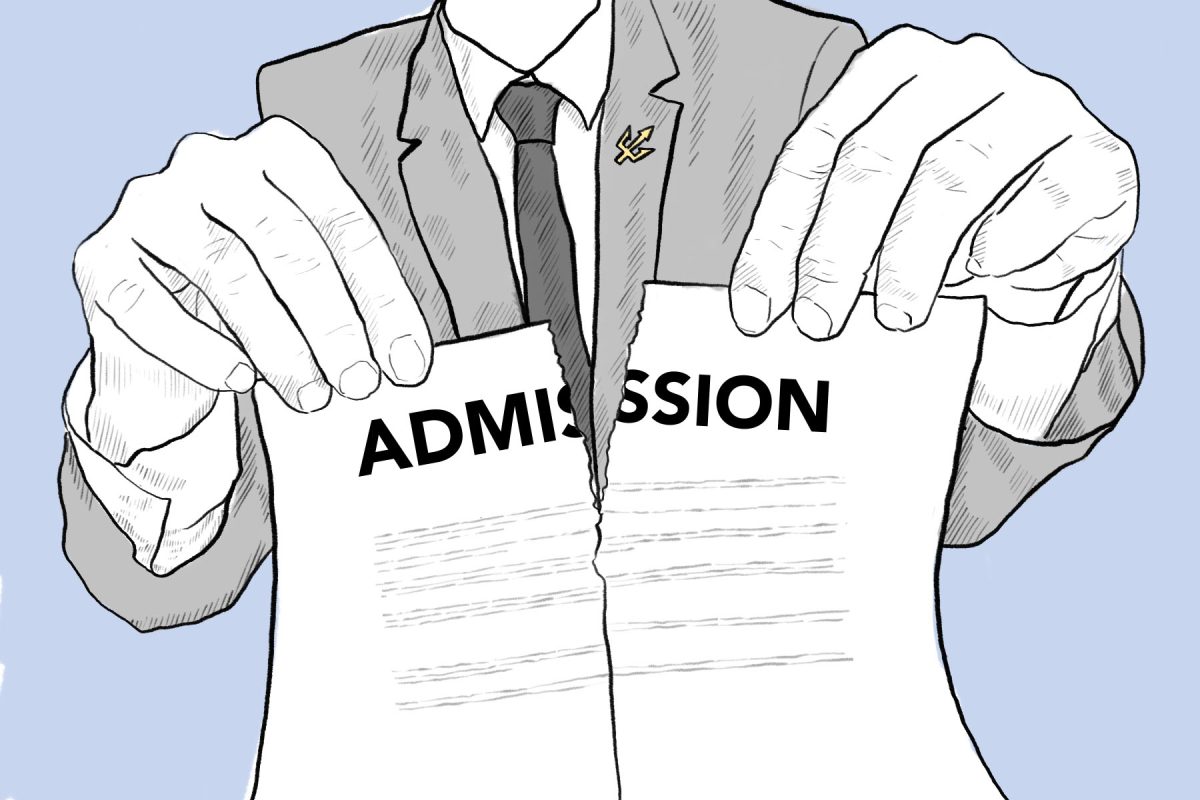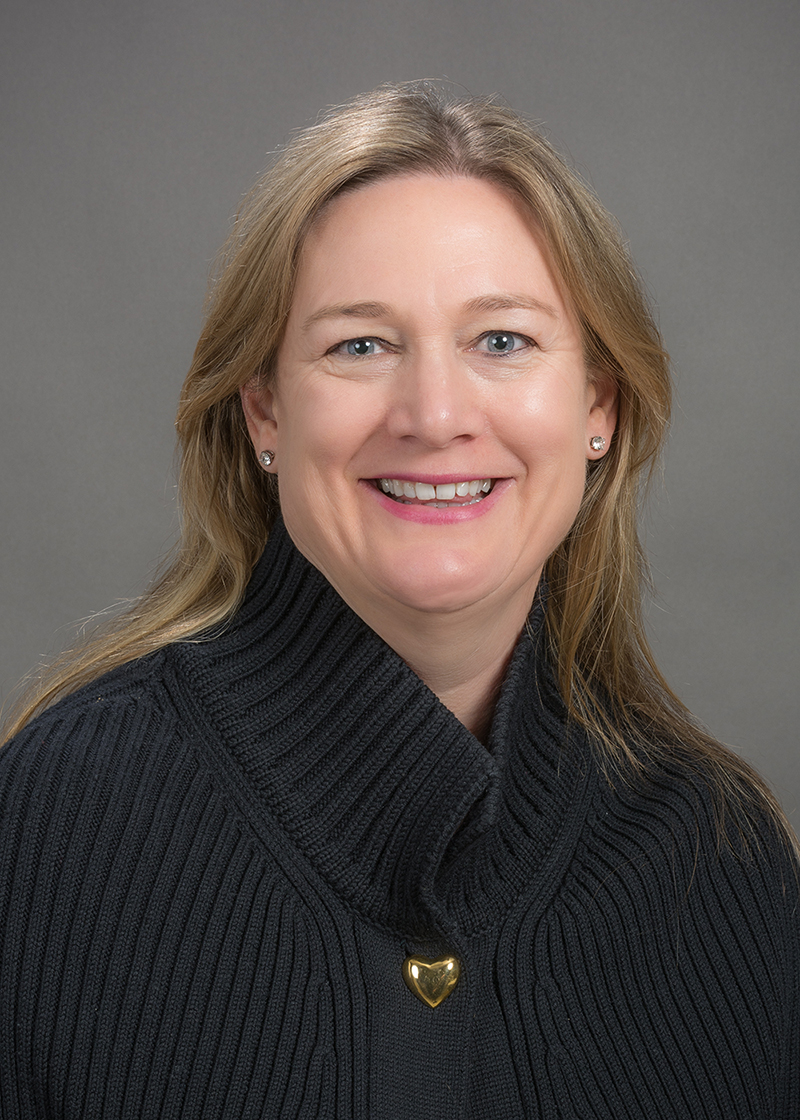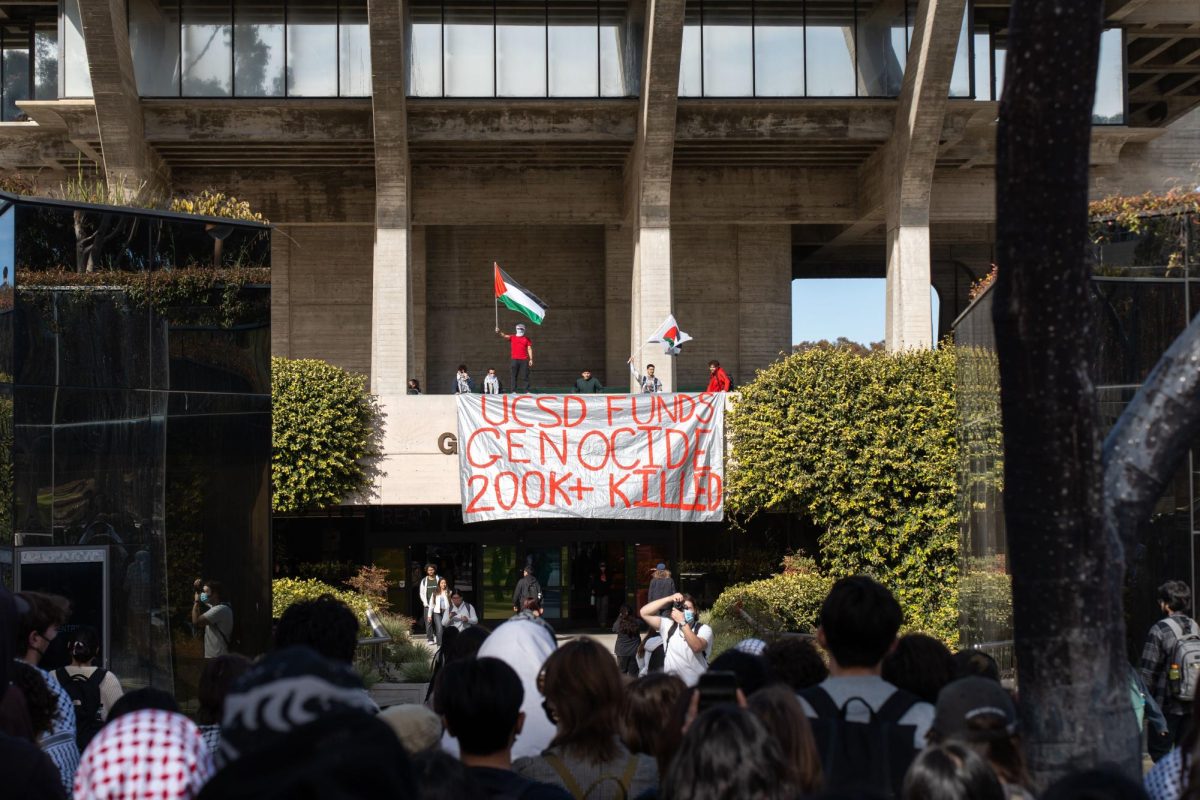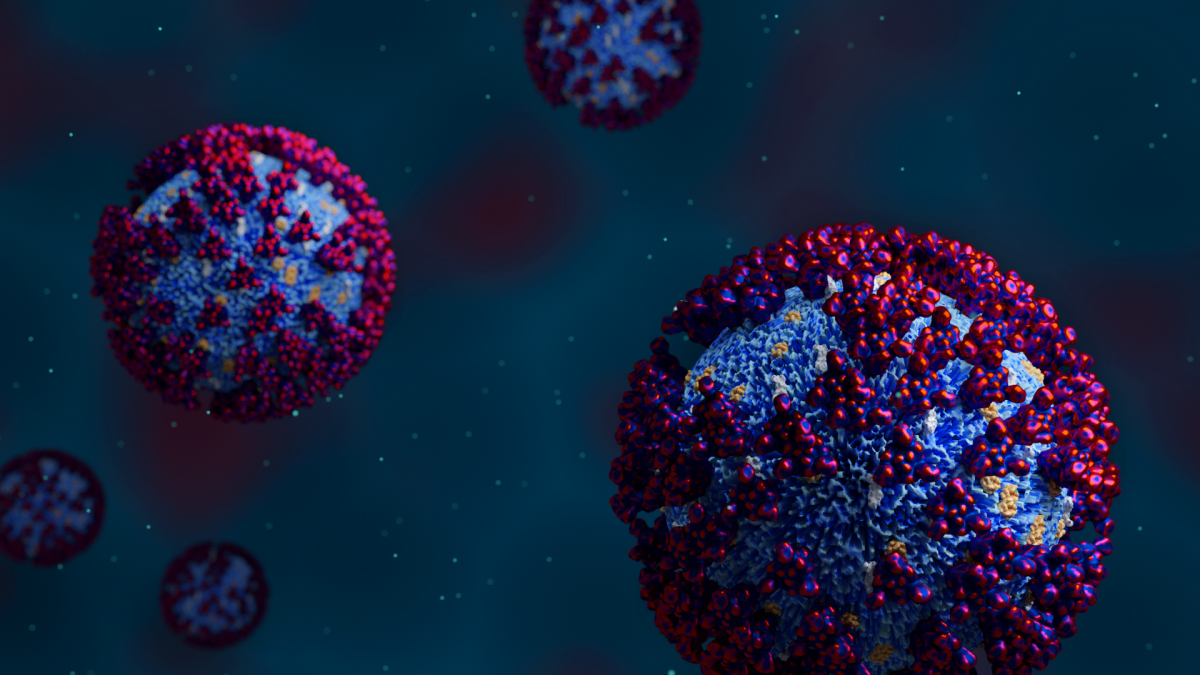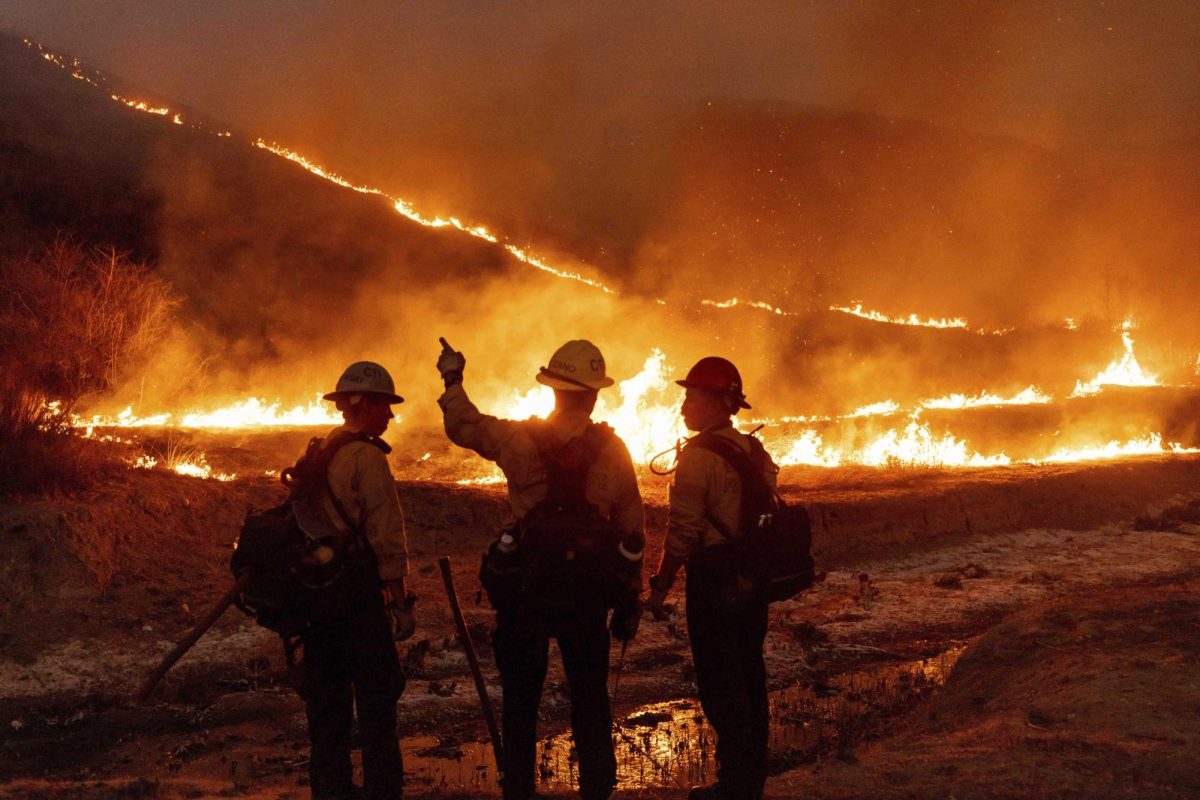In the depths of the UC San Diego subreddit, various users have shared their grievances concerning parking on campus. Search results for the word “parking” return various complaints about the price and lack of parking on campus. The struggle of navigating a changing campus is the reality for many commuters at UCSD.
Eleanor Roosevelt College freshman Caleb Pigon opted out of applying for a parking pass. He now relies on the Nobel Drive trolley station for his commute.
“I do have a station near my house, and I feel like that was the most viable way to get to school,” Pigon said.
Pigon already knew that it was difficult to park on campus. Despite arriving as early as 6 a.m., his mother struggled to find parking for work. While his mother may have different spaces allocated to her as an employee, indicated by one of the letters like “A” or “B,” they both have had to fight for a seemingly small number of spaces.
Updates from UCSD Transportation Services can be found in the section titled “Campus Notices” from emails they send to students frequently. One such email, sent on Dec. 18, 2023, stated that “Student Resident parking spaces will be expanded and Student Commuter (S) spaces will be relocated to P304 or removed.”
Many Redditors argued about student residents’ need for on-campus parking versus that of commuters. Regardless, all students must share the limited parking spaces. One solution Pigon suggested was adding extra spaces for students in off-campus structures like the one at the Nobel Drive trolley station.
“At Nobel Drive, there are only two levels of college student parking, I believe,” Pigon said. “It would be nicer to have an extra level. Two levels realistically aren’t enough, especially for the entire commuting population.”
Even as UCSD tries to send updates and make changes to better the parking allocation, it still isn’t sufficiently accommodating its student population. Commuters like Pigon must park off campus and ride the trolley. His commute, in total, is an hour and ten minutes. Like many other commuter students, he must carefully plan out when to leave for campus.
“Typically, when I try to schedule my classes, I think three hours before [my class],” Pigon said.
Pigon’s schedule is similar to that of other commuters, but those who drive directly to campus also have to account for the traffic. John Muir College sophomore Kamal Desai said that it would help to increase the number of parking spaces on campus.
“If there were more parking spots available, then I could leave at a later time, which would be helpful for me in the mornings,” she said. “If I had a class at 9:00 a.m., I would have to leave at 7:00 a.m. because of the traffic and the commute time as well.”
This takes into account both the time it takes Desai to get to school and to find parking. Although she could leave early enough to have thirty minutes before class, she added an extra hour for getting to the parking lot, taking the bus, and walking to class. Initially, she parked at the discount lot in Regents and then took the bus from there, but she no longer wanted to pay the fee, especially for parking so far away.
“I feel like the fact that we have to pay just so that we can park on campus and also park super far away is kind of unreasonable,” Desai said.
Desai is referencing the daily fee that students must pay if they choose not to apply for a parking pass. She argues that discount lots should be free or at least have a lower fee. She acknowledges that the money may go towards something beneficial for UCSD, but without knowing what that is, it’s difficult to feel justified in paying it.
According to the Transportation Services, broadly, these permit fees fund the parking facilities. In order to fund these improvements, their website states that they would be “implementing modest annual parking permit rate increases … every four years after July 2021.”
This price is not included in tuition estimates. If students do not want to pay for parking, they can also take the UCSD Blue Line Trolley. While public transportation fees are built into her tuition, Desai discussed the downsides of using the trolley.
“Even if the trolley is accessible, I think people are wary of taking it because it is super unsafe at times,” Desai said. “There have been so many cases where people have been attacked right near this area on our campus or nearby stations.”
If students are concerned for their safety, they have no other choice than to drive to campus or close enough to take the bus, adding commute time. Although UCSD encourages students to utilize the trolley and public transportation options, for some students, it is not a viable choice. The trolley has limited reach and is inaccessible to students who do not live along the coast.
Desai added that the discount lots on campus are unable to accommodate the growing student population.
“I mean, if you look at how the school might increase in size with the amount of colleges and you look at the discount lot size, it’s actually pretty small,” Desai said. “There are spots available, but in a few years, more people are going to start coming, so they’re eventually going to either make more lots or make a new parking structure somewhere.”
Another point of debate is carbon emissions. Sixth College sophomore Jay Garcia explained the discrepancies between UCSD’s policy on carbon emissions and how parking works on campus.
“They talk about being green, but then us having a hard time looking for parking or driving somewhere further than it should cause more emissions,” Garcia said.
According to the Deep Carbonization Initiative on UCSD’s website, the university wants to push toward net-zero carbon emissions. While it is not explicitly written into their mission statement, they must take into consideration the emissions from the roads surrounding campus. Simply encouraging the use of public transportation does not account for students who do not have access to buses or trolleys.
Garcia is also a commuter student who agrees that UCSD should build more parking on campus to alleviate the problems that commuters and others face when on campus. He claims that a little over half the student population are commuters. The timing of his classes and the decreasing number of parking spaces designated for commuters make it difficult for students to find those spaces in time for their classes.
“Ever since they added the SR parking at Regents, it’s been so much harder to find parking there,” Garcia said. “It’s been more full lately, especially if you’re coming later in the day, like around 12 p.m., since residents and commuters are trying to go for the same spots.”



